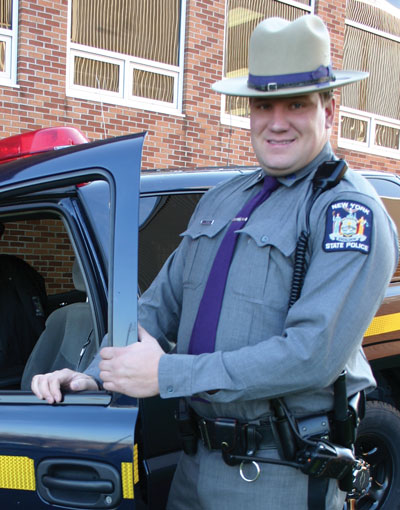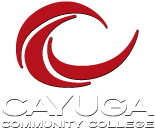CRIMINAL JUSTICE – POLICE A.A.S.
The Criminal Justice: Police program builds a critical foundation employment in the field of law enforcement or criminal law. The program provides a practical and theoretical basis for employment in law enforcement or an investigative field, or for transfer to a four-year institution offering a criminal justice or closely related major if desired.
POLICE PROGRAM LEARNING OUTCOMES
- Identify the various components of the criminal justice system.
- Identify current trends and issues in law enforcement.
- Understand the cause and effect of crime and personal and criminal behavior.
- Understand and apply knowledge of the New York State Penal Law and Criminal Procedure Law.
- Apply investigative techniques and methods as it applies to criminal cases, proceedings and management.
- Identify factors relating to juveniles and crime, current trends and issues relating to juvenile justice, and treatment and rehabilitation of juveniles including alternative and diversion programs.
- Obtain knowledge of basic organization and management techniques and methods as they apply to law enforcement leadership.

CAREER POSSIBILITIES
Career opportunities will vary, including, but not limited to: local, state or federal law enforcement officer (i.e.: City Police Officer, County Deputy Sheriff, State Police, or Federal Agent), Peace Officer, Conservation Officer, Security Officer, Campus Safety/Security Officer, U.S. Secret Service, U.S. Coast Guard, Private Investigation, or Department of Homeland Security.
NOTE: Civil service exams are required for most institutional correctional positions as well as certain physical requirements and an extensive background investigation. Additional education and/or training may be required for certain law enforcement professions.
TRANSFER INFORMATION
Students planning to transfer to a four-year institution degree program in Criminal Justice or a related degree program should contact their advisor, or the Coordinator for Transfer and Articulation in the Centers for Student Engagement and Academic Advisement, or the Criminal Justice Coordinator to plan the most appropriate course sequence for optimal transferability. It is highly suggested that students who wish to transfer complete their current degree program in its entirety unless they have met with the appropriate staff and a more comprehensive plan is attained.
DEGREE REQUIREMENTS
The curriculum listed on this page represents the minimum coursework required for the AAS degree in Criminal Justice: Police. Any exception in major courses must have the written consent of the chair of the Division of Behavioral/Social Sciences, Business, Criminal Justice, Teacher Education, Physical Education/Health.
Candidates for the AAS in Criminal Justice: Police must meet the following requirements:
- Completion of all required credits – 63 total
- Cumulative average of no less than a 2.0
| COURSES | CREDIT HOURS | |
|---|---|---|
| FIRST SEMESTER | ||
| ENGL 101 | Freshman English I | 3 |
| CJ 111 | Introduction to Justice Systems | 3 |
| CJ 115 | Criminal Law | 3 |
| PSY 101 | Introductory Psychology | 3 |
| Math/Science | 3 | |
| Health | 1 | |
| Physical Education | 1 | |
| 17 | ||
| SECOND SEMESTER | ||
| ENGL 102 OR ENGL 270 |
Freshman English II OR Technical Writing * |
3 |
| CJ 112 | Organization and Administration of Justice Systems | 3 |
| CJ 119 | Criminal Investigations | 3 |
| CHEM 108 | Forensic Science ** | 3 |
| Behavioral Sciences | 3 | |
| Physical Education | 1 | |
| 16 | ||
| THIRD SEMESTER | ||
| ENGL 220 OR ENGL 221 OR ENGL 222 |
Interpersonal Communications OR Effective Speech: Public Address OR Effective Speech: Group Discussion |
3 |
| CJ 117 | Juvenile Delinquency | 3 |
| CJ 123 | Laws of Evidence | 3 |
| Social Sciences | 3 | |
| Elective | 3 | |
| 15 | ||
| FOURTH SEMESTER | ||
| CJ 220 | Criminology | 3 |
| CJ 222 | Constitutional Law | 3 |
| Behavioral/Social Sciences | 3 | |
| Electives | 6 | |
| 16 | ||
| TOTAL CREDIT HOURS | 63 | |
* ENGL 102 is strongly recommended for transfer students
** SPAN 121 (Spanish for Public Safety Officials) recommended
A prior felony conviction may hinder a student’s ability to enroll in a course or complete the requirements of certain academic programs and/or meet the criteria for licensure required by certain professions.
